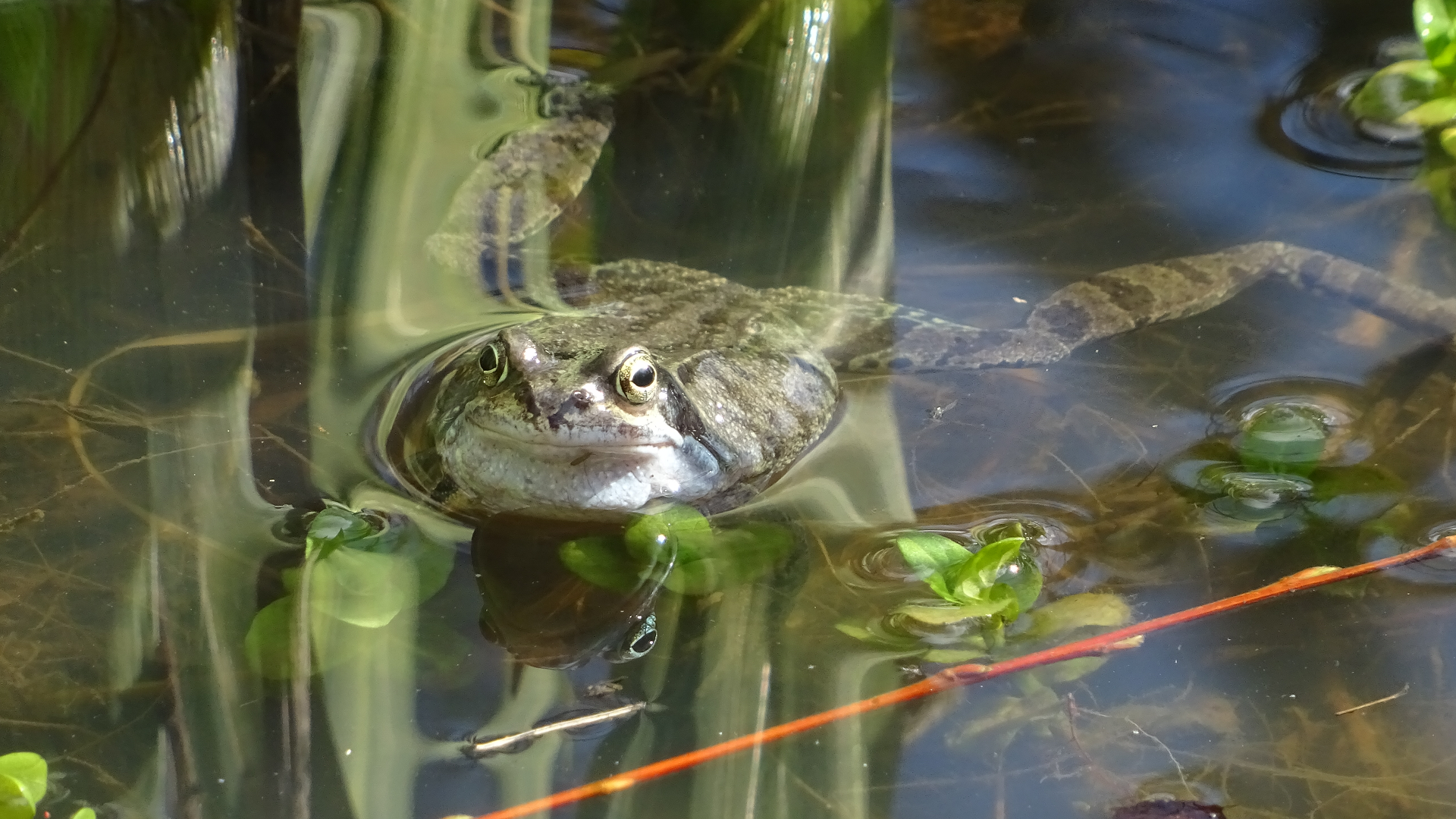
Slide title
Common Frog Rana temporaria
©Raymond Small TQ4792 18/05/2022
Button
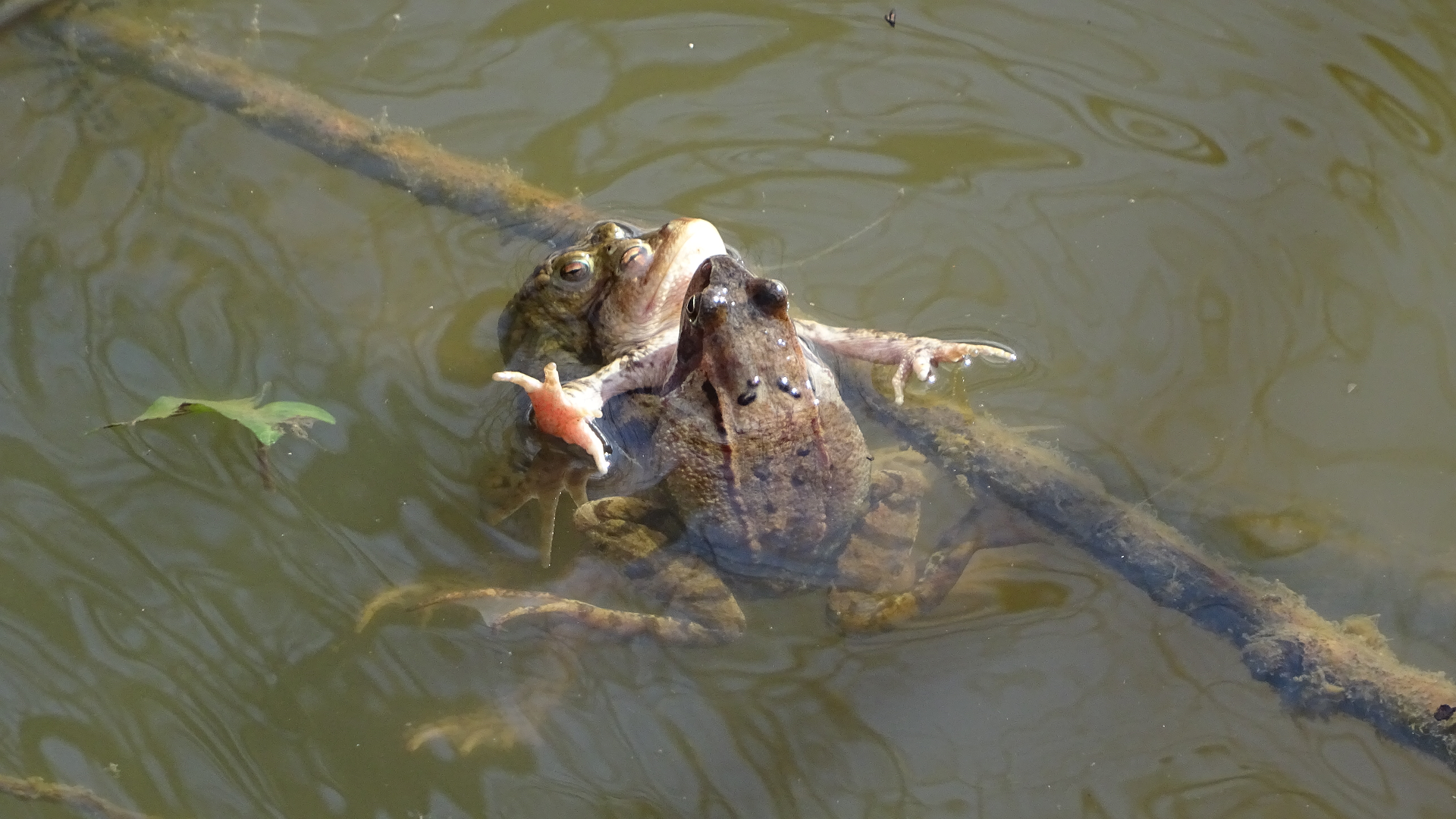
Slide title
Common Frog Rana temporaria
©Raymond Small TQ4792 18/05/2022
Button
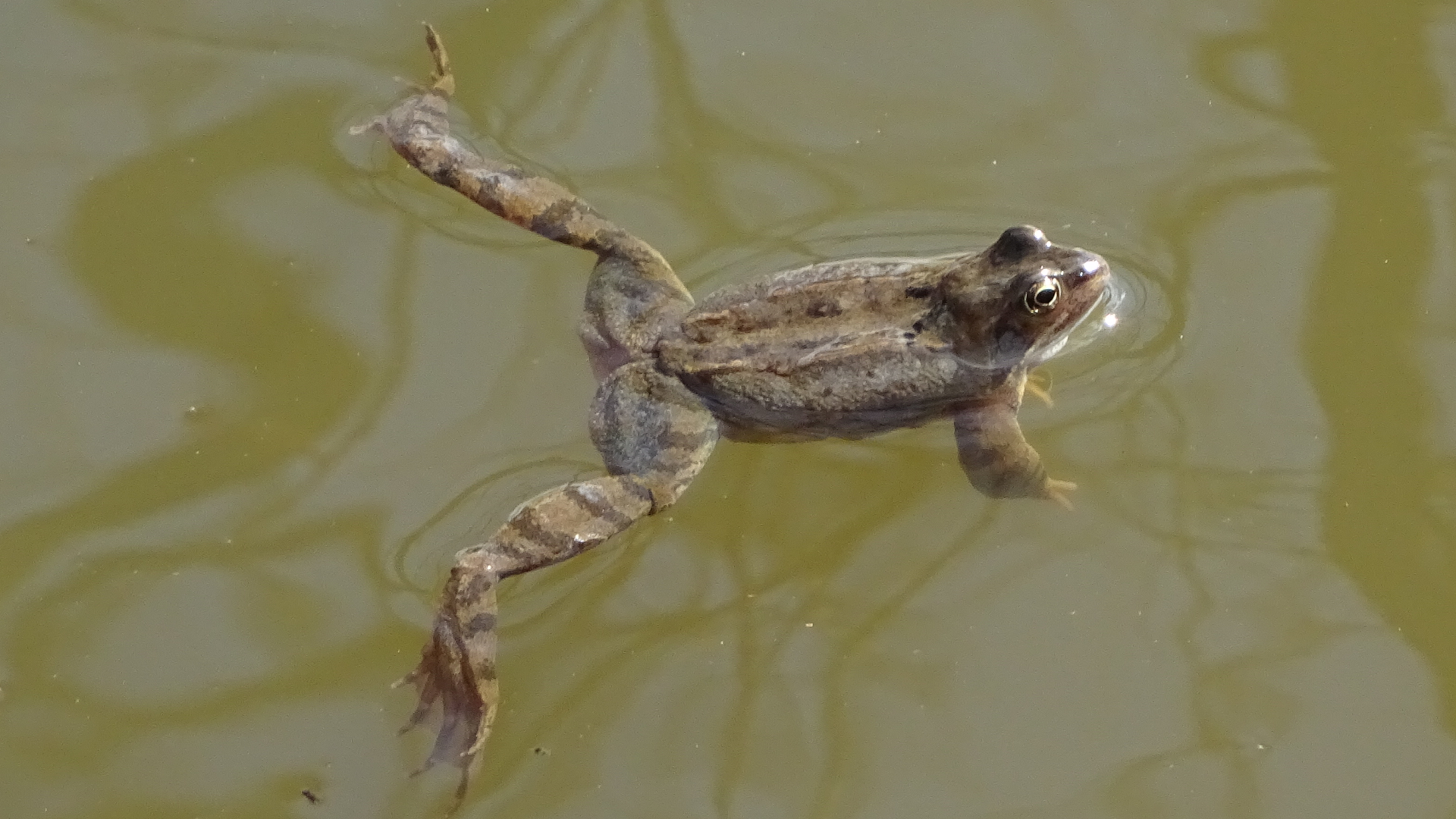
Slide title
Common Frog Rana temporaria
©Raymond Small TQ4792 18/05/2022
Button
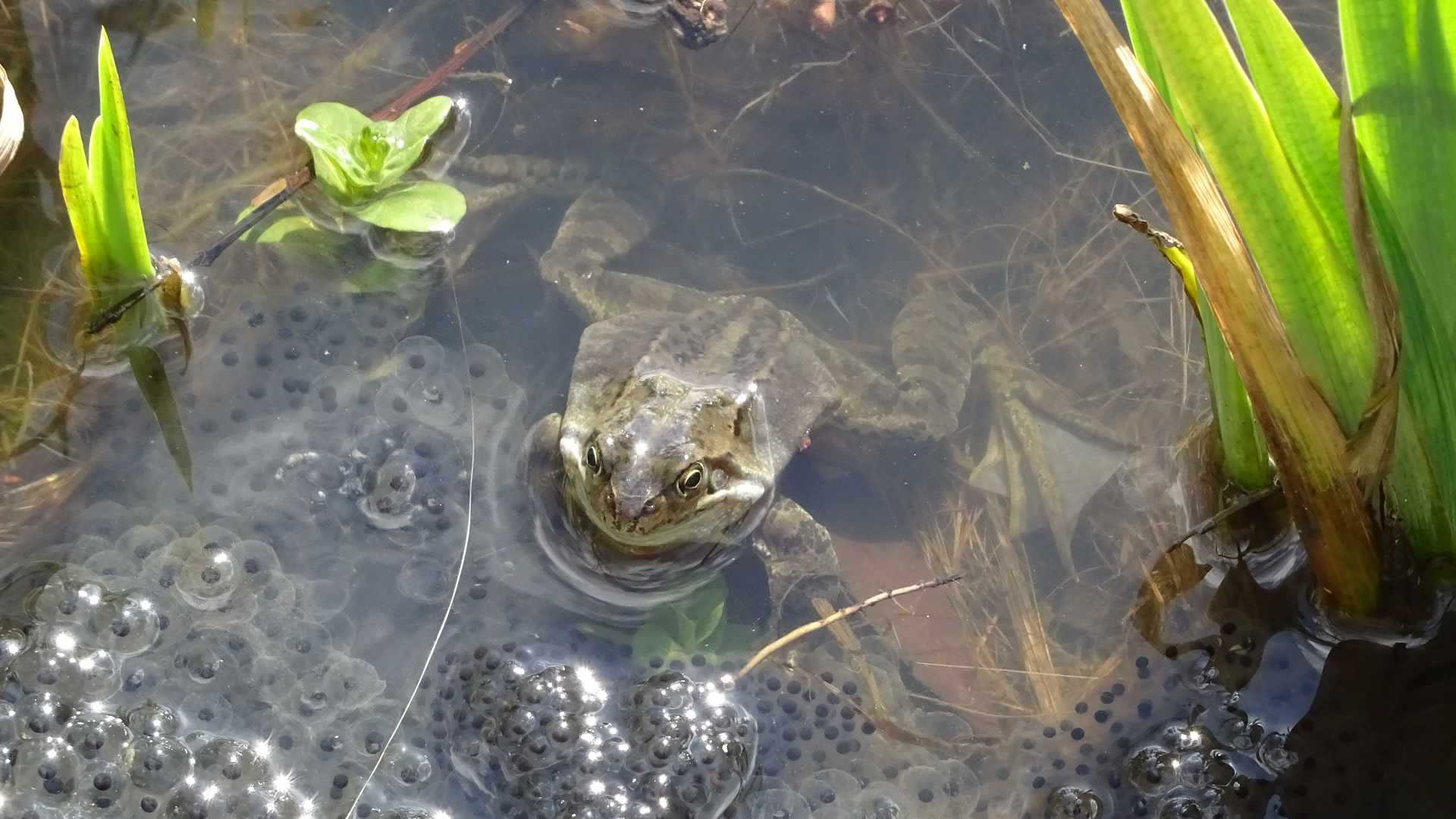
Slide title
Common Frog Rana temporaria
©Raymond Small TQ4792 18/05/2022
Button
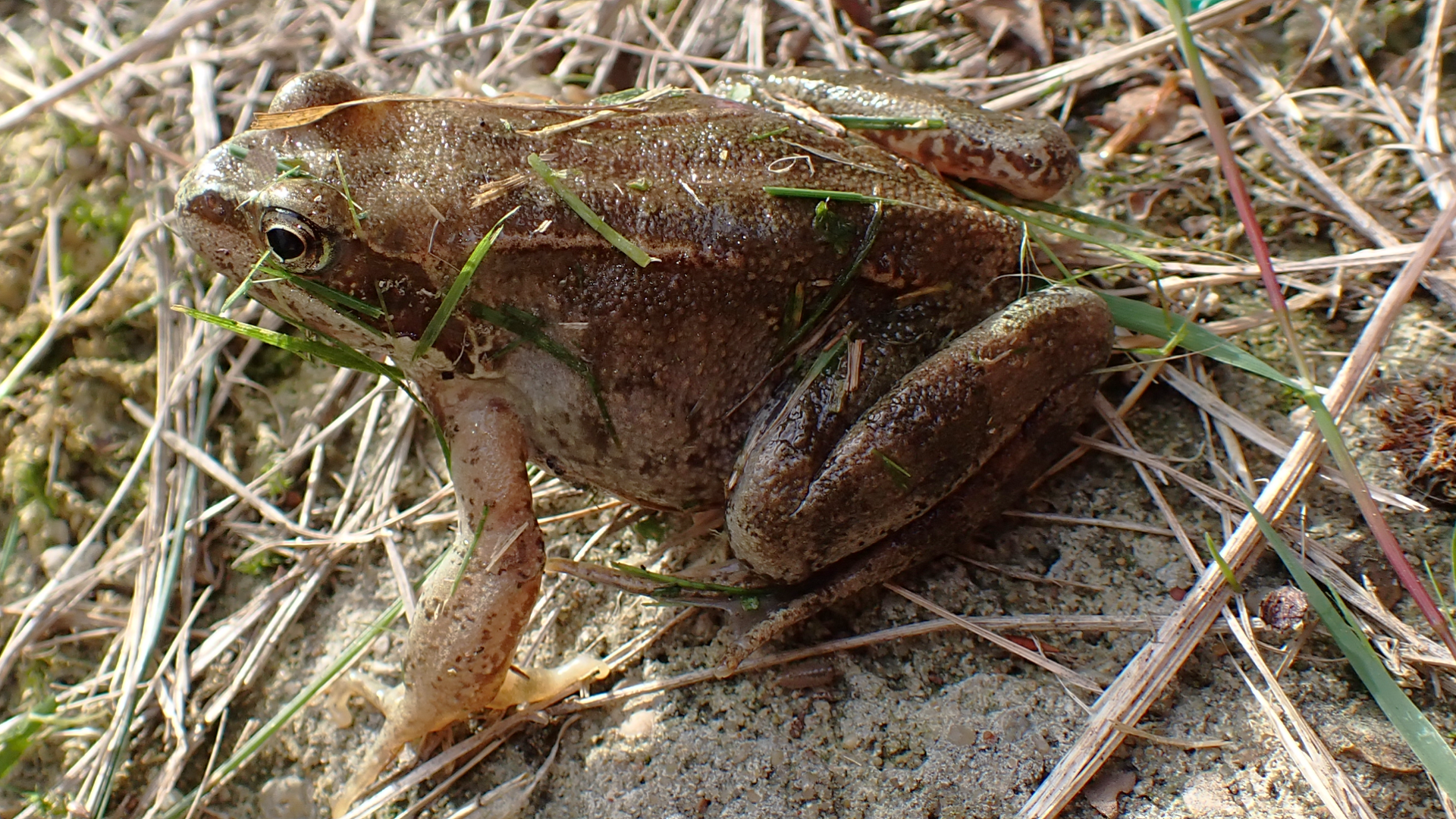
Slide title
Common Frog Rana temporaria
©Raymond Small TQ4692 09/10/2023
Button
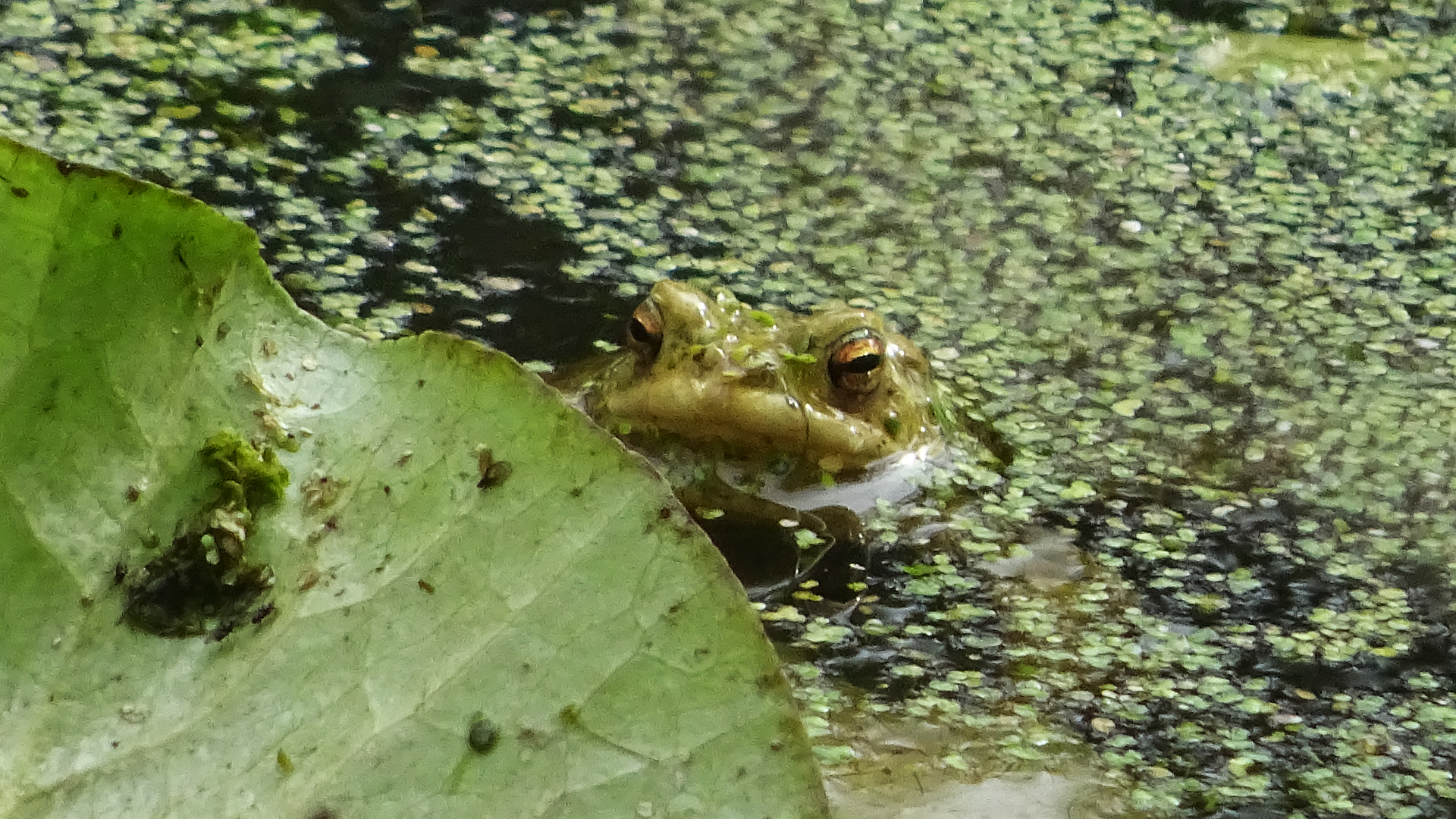
Slide title
Common Frog Rana temporaria
©Raymond Small TQ4793 14/03/2024
Button
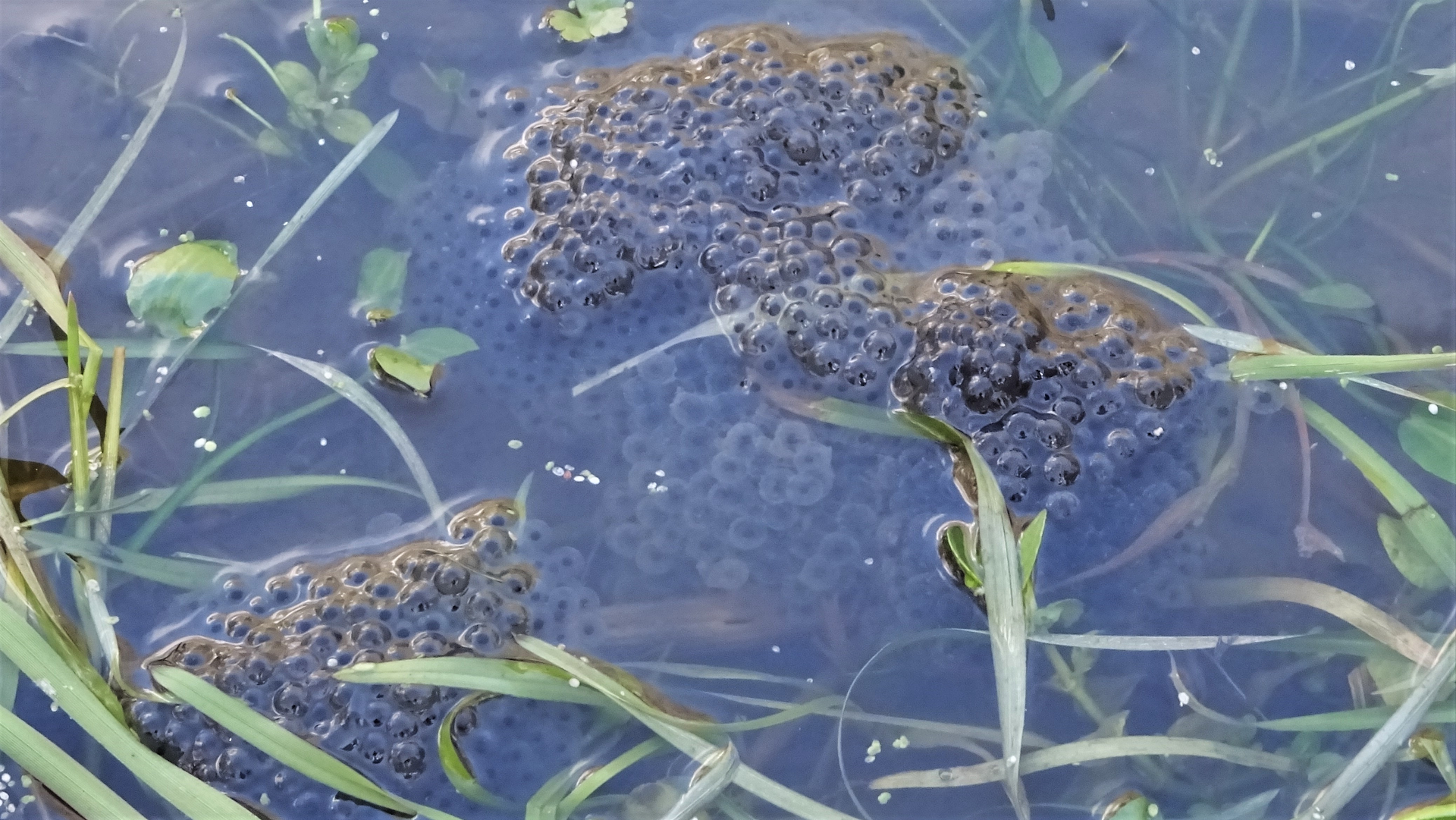
Slide title
Frog Spawn Rana temporaria
©Raymond Small TQ4793 05/03/2019
Button
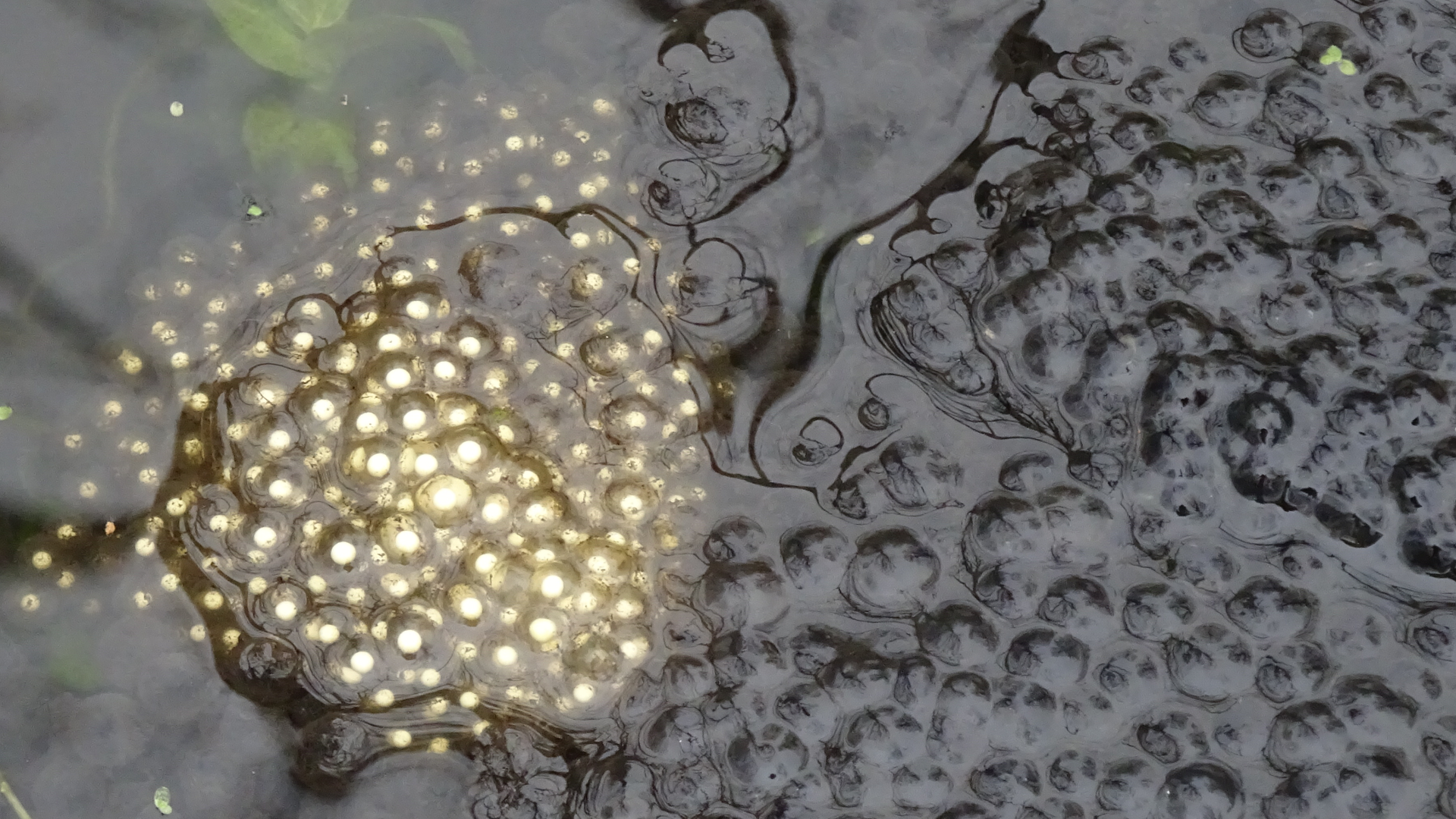
Slide title
Unfertilised Frog Spawn Rana temporaria
©Raymond Small TQ4793 10/05/2017
Button

Slide title
Common Frog Rana temporaria
©Raymond Small TQ4792 18/05/2022
Button

Slide title
Common Frog Rana temporaria
©Raymond Small TQ4792 18/05/2022
Button

Slide title
Common Frog Rana temporaria
©Raymond Small TQ4792 18/05/2022
Button

Slide title
Common Frog Rana temporaria
©Raymond Small TQ4792 18/05/2022
Button

Slide title
Common Frog Rana temporaria
©Raymond Small TQ4692 09/10/2023
Button

Slide title
Common Frog Rana temporaria
©Raymond Small TQ4793 14/03/2024
Button

Slide title
Frog Spawn Rana temporaria
©Raymond Small TQ4793 05/03/2019
Button

Slide title
Unfertilised Frog Spawn Rana temporaria
©Raymond Small TQ4793 10/05/2017
Button
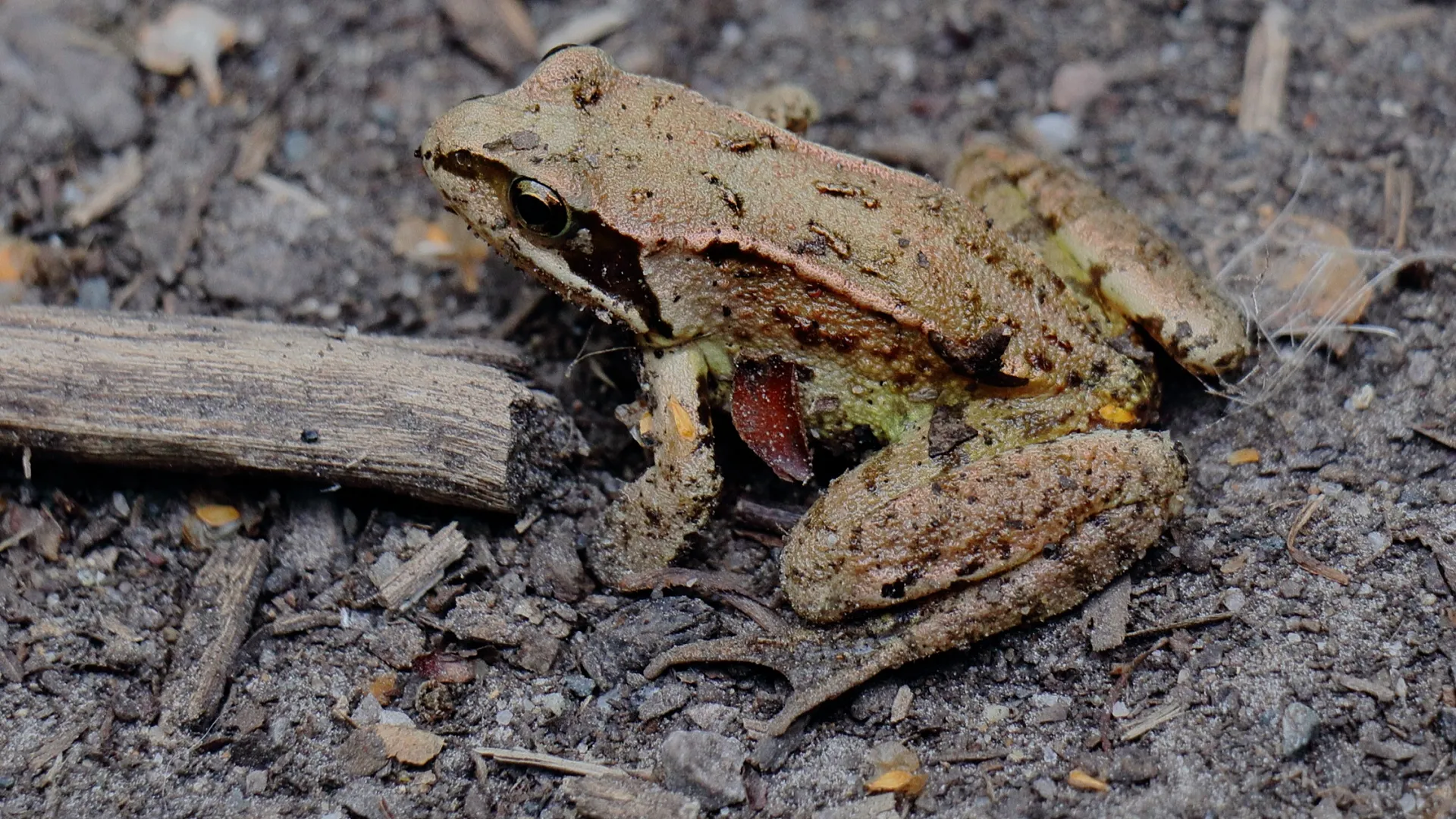
Slide title
Common Frog Rana temporaria
©Mike Rumble TQ4793 05/08/2024
Button
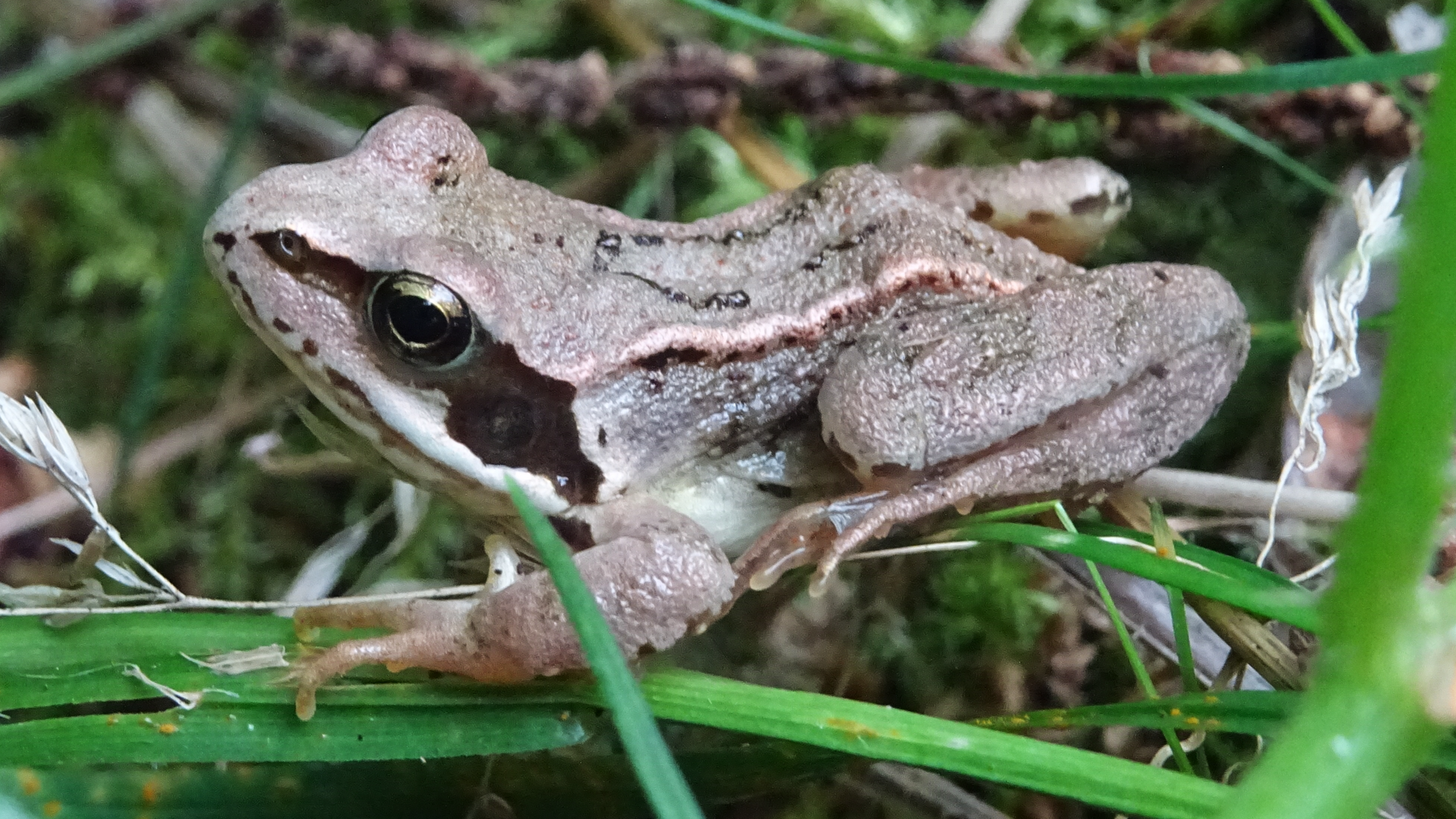
Slide title
Common Frog Rana temporaria
©Raymond Small TQ4793 10/08/2024
Button
Common Frogs are found in various colours, ranging from all shades of olive, brown or grey, but seldom are they bright green. There is normally a dark patch behind the eye and dark bands on the legs. Individuals are able to alter colour in response to light and temperature conditions. When spring approaches frogs emerge from hibernation and make their annual migration to Hainault Lake. The time this happens is governed by the temperature. Frogs croak to advertise that they are available for mating. The male jumps on a female's back and takes a tight grip. This hold may last several days until the female releases her eggs which is normally done at night in shallow water. Sometimes more than one male will be attached. Females make release calls to indicate they have spawned. Males make release calls too but in their case it is to reject unwelcome advances from other males.
Frog spawn is usually laid in tight clusters at the edge of the water. Tadpoles stay together in a writhing mass when they first hatch. White spawn occurs when it has not been successfully fertilised. This usually breaks down naturally in the water, however occasionally the white dots develop into white or ‘transparent’ tadpoles.
© hainaultforest.net. All rights
reserved.











